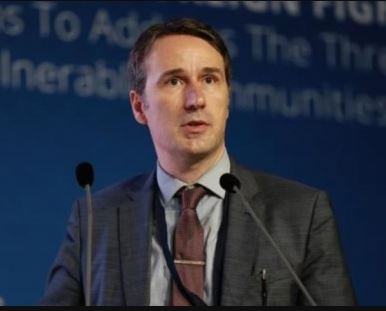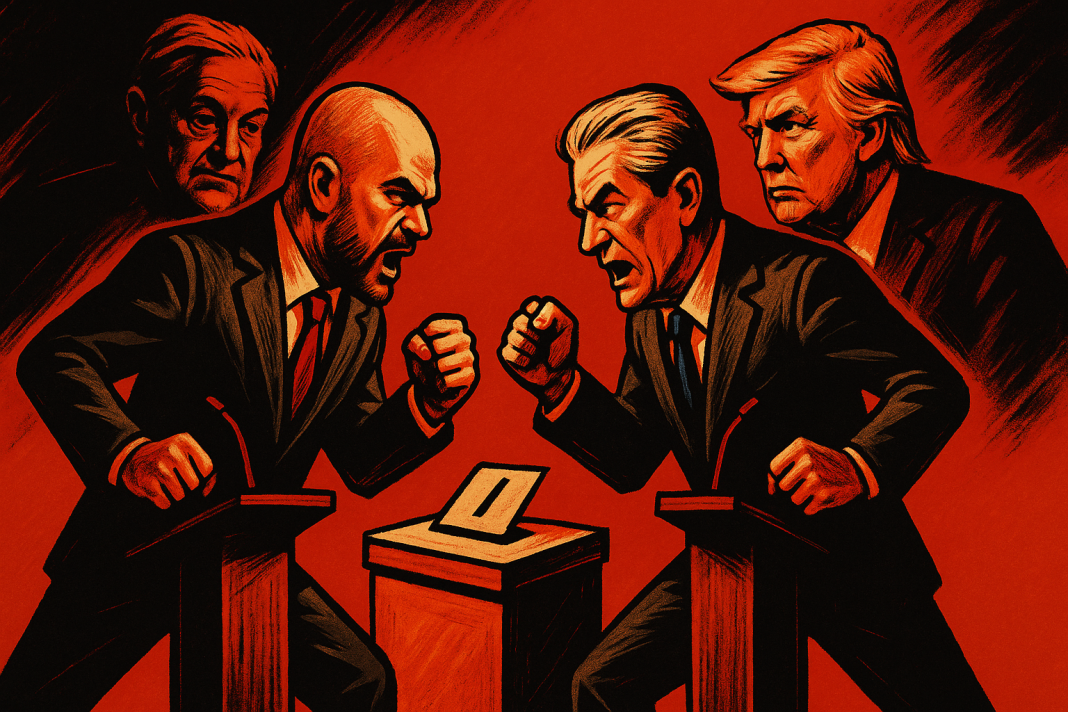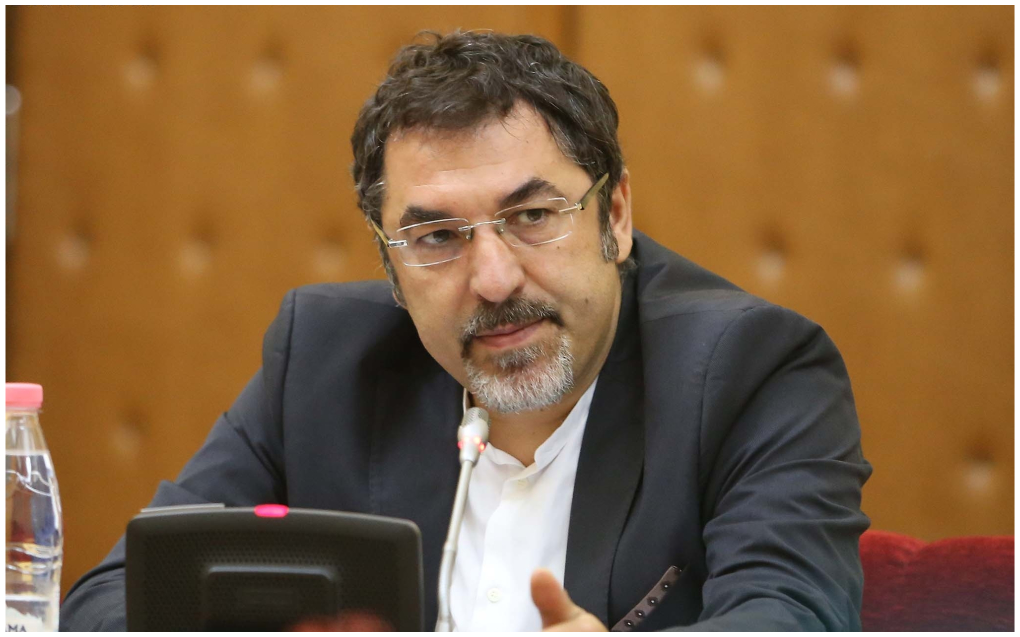Jona Plumbi
Two international media outlets, Fox News and Politico, have turned their attention to Albania’s political landscape ahead of the parliamentary elections, interpreting the clash between Rama and Berisha as a reflection of geopolitical tensions that extend beyond national borders. Fox News presents the confrontation as an ideological battle between former U.S. President Donald Trump and philanthropist George Soros, while Politico sees the situation as a reflection of strategic frictions between the European Union and the United States, with possible implications for Albania’s European integration path.
However, experts interviewed by Faktoje view this comparison as being more driven by electoral tactics than by political realities, and they believe it does not pose a real threat to the country’s European integration.
A ‘Trump vs Soros’ Battle in the Albanian Context?
Fox News is known for its conservative editorial line, often supporting politicians and policies aligned with the Republican Party. This outlet has been particularly supportive of Donald Trump during his presidency and critical of the Democratic Party and liberal media.
In Fox News‘ analysis of the elections in Albania, journalist Beth Bailey suggests that the political competition in Albania has become an indirect representation of the clash between Donald Trump and George Soros. She highlights the involvement of Chris LaCivitas, a strategist from Trump’s campaign, in Sali Berisha’s team, while also pointing to the known ties between Prime Minister Edi Rama and the Soros family.

LaCivitas reinforced this narrative by stating to Fox News that Berisha is ‘a true friend of the United States and… would successfully cooperate with President Trump and the United States,’ while labeling Rama as a ‘puppet of George Soros’.
The relationship between Rama and Soros is well-documented and public. The Prime Minister has frequently emphasized his closeness with George Soros, particularly with his son, Alex Soros, with whom he has been photographed multiple times over the years.
However, Albanian political analysts view this parallel as artificial. According to Adrian Shtuni, an expert in international politics and a publisher, Berisha’s attempt to align himself with Trump is clear and deliberate: ‘He borrows political slogans and messages almost identical to those of Trump,’ says Shtuni, pointing out three key reasons behind this strategy.
The first reason, according to Shtuni, is the desire to replicate Trump’s success in the U.S. in Albania: ‘If it worked for Republicans in the U.S., it should work for the right-wing in Albania’. In the 2024 U.S. presidential election, Trump managed to defeat Kamala Harris by a margin of over 2 million votes.

Although surveys in Albania do not show the same trend, data from the Euronews Albania Barometer reveal that Berisha has experienced an increase in the approval of his figure from January to April.

Secondly, according to Shtuni, it is the attempt to present the local conflict as part of a broader ideological clash between the anti-globalist right and the globalist left.
‘The goal is to present the Rama-Berisha confrontation as part of the ideological clash between the strong anti-globalist right or Trumpism on one side, and the globalist left in the US and Europe, often represented by Soros’ – Adrian Shtuni, researcher.

According to him, this also sends a direct message to the electorate: ‘Our ideological partner won in the US; we are with the winner; vote for those who are with the winner,’ explains Shtuni.
Thirdly, and more personally: ‘This is Berisha’s attempt to signal ideological proximity with Trump and to seek the review of his non-grata status by the US Department of State,’ according to Shtuni.
‘After all, imitation is the sincerest form of flattery, and I believe Mr. Berisha and his political camp are trying to position themselves strategically above, utilizing the advice, experience, and connections that Mr. LaCivitas offers,’ he argues.
Ledion Krisafi, an expert on international politics, agrees with this assessment, pointing out that Berisha had previously been associated with Soros’s network and that his current distancing is strategic: ‘Berisha has only recently become anti-Soros in order to impress Trump and have the non-grata status lifted,’ emphasizes Krisafi.
For Krisafi, Berisha borrowing Trump’s ideas is simply a personal calculation: ‘Most of these ideas have no connection to the political and social reality in Albania. It’s just to make an impression.’ However, he sees it as a positive sign for Berisha that a media outlet like Fox News has given attention to this comparison.
‘Nonetheless, I don’t think this will have a real impact on the Albanian elections. This is a personal battle for Berisha to have his non-grata status removed, and it doesn’t change the fact that most Albanians don’t see him as the next prime minister.’ – Ledion Krisafi, international relations expert.

Politico and EU–US Tensions: Albania in the Middle
Politico, on the other hand, a professional and relatively balanced source, is often perceived as leaning closer to liberal or center-left positions within the American political spectrum. The Politico article offers another interpretation of the electoral dynamics in Albania. The race between Rama and Berisha is seen as a possible reflection of the tensions between the EU and the US in the context of the transatlantic ‘trade war’, suggesting that Albania’s alignment with Brussels’ economic policies could bring challenges in its relationship with Washington.

Geron Kamberi, a researcher in international relations, explains that although the ‘crack’ in US–EU relations exist, it does not bring any consequences for Albania, as the country has no role in the new reconfiguration of transatlantic relations.
‘If these differences deepen in the future and move particularly toward what could be called a ‘European NATO,’ then Albania, as a candidate country or a potential EU member, will need to calculate its own strategic and diplomatic interests.’ – Geron Kamberi, researcher in international relations.

Adrian Shtuni states that the situation doesn’t represent a serious threat: ‘I don’t expect the tariff dispute between the EU and the US to negatively affect US–Albania relations. The EU member states themselves aren’t unified on this issue, so I doubt they would push Albania to take a firm position.‘
In his view, a pragmatic deal will likely be reached to restore trade balance. Ledion Krisafi agrees: ‘The trade war won’t be prolonged. Its consequences are already being felt in markets and trade. The US isn’t seeing real gains, so I believe an agreement will be made soon, avoiding any pressure on Albania to pick sides.‘
Geron Kamberi adds another point of reassurance: ‘Albania’s strategic aim of EU membership has remained constant across all political parties. In fact, the main two (PS and PD) have often turned their campaigns into a ‘Formula One race’, each claiming to have the fastest car of promises to get Albania into the EU.’










